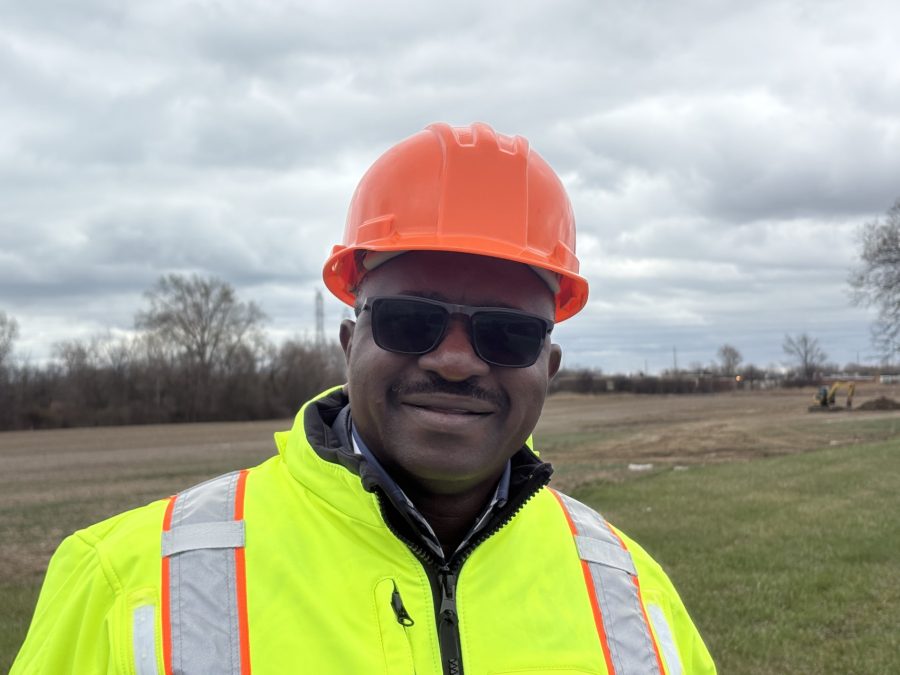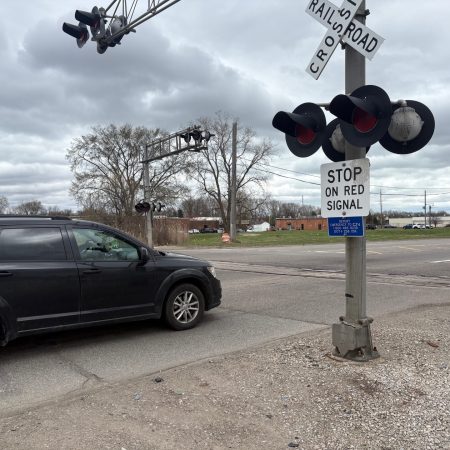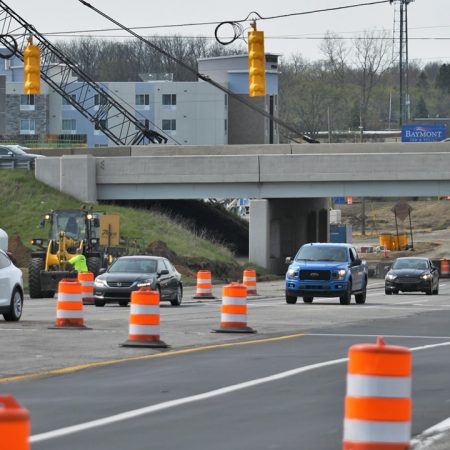Wayne County begins long-delayed railroad project
Wayne County has broken ground on a project that’s supposed to reduce train delays in the Downriver area.
The plan is to separate the railroad tracks from a section of Allen Rd. in Woodhaven. Crews will lower the road so that it runs underneath the tracks.
It’s a public safety issue
County Public Services Director Dayo Akinyemi says when it’s finished, trains will no longer delay traffic on Allen Rd. north of Van Horn Rd. He says it’s common for ambulances, fire trucks, and police cars to get stuck while responding to emergencies.
“This will make that problem go away,” he says. “Anybody that lives Downriver will know that this is a problem we’ve been trying to solve for a long time.”
Wayne County announced the grade separation project in 2020. Akinyemi’s predecessor, Beverly Watts, said at the time she hoped to finish it within two or three years.
But in 2022, Watts estimated the job would cost about $28 million dollars. Rising expenses delayed the project and raised the price tag to $65 million.
So, Akinyemi says county, state, and local officials worked together to come up with the money.
“There are several sources of funds that’s cobbled together to get us to where we are today,” he says. “There’s money in the state transportation department, some earmarks from the federal government, earmarks from the state Legislature.”

Another challenge was acquiring right-of-way to relocate utilities such as power lines, fiber-optic cables, and water mains.
How long will it take?
“We’ve started the relocation of the Verizon lines,” he says. “Once we finish that, DTE gas will come to relocate their own line.”
And Akinyemi says by fall, people will see a lot more activity in the area.
“Next year, we’ll begin the real construction,” he says. “There will be a period of time when there will be a full closure and a diversion of traffic.”
More: MDOT aims to end Fort Street train delays Downriver
Akinyemi estimates it will take up to three years to finish the project. During that period, the Michigan Department of Transportation expects to begin work on a similar project on Fort St. north of Van Horn Rd. in Trenton.
The post Wayne County begins long-delayed railroad project appeared first on WDET 101.9 FM.

